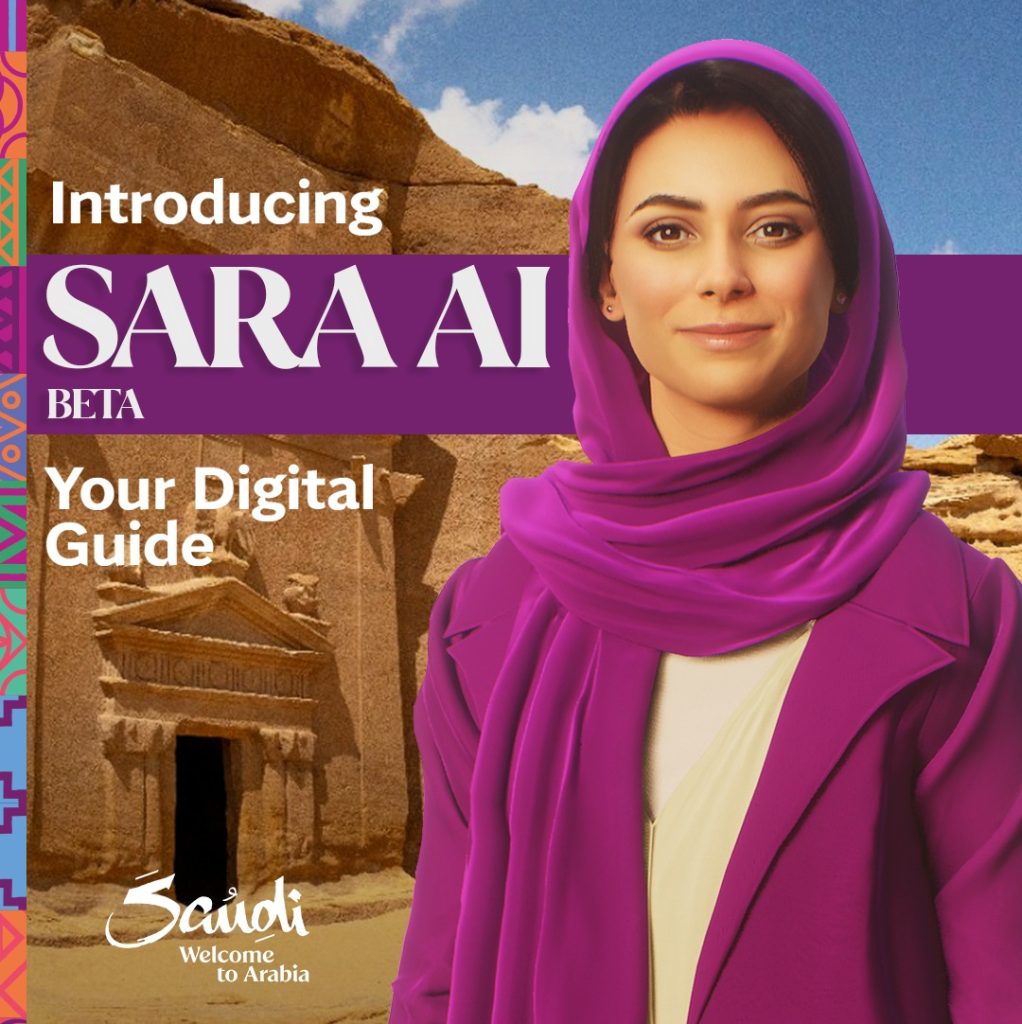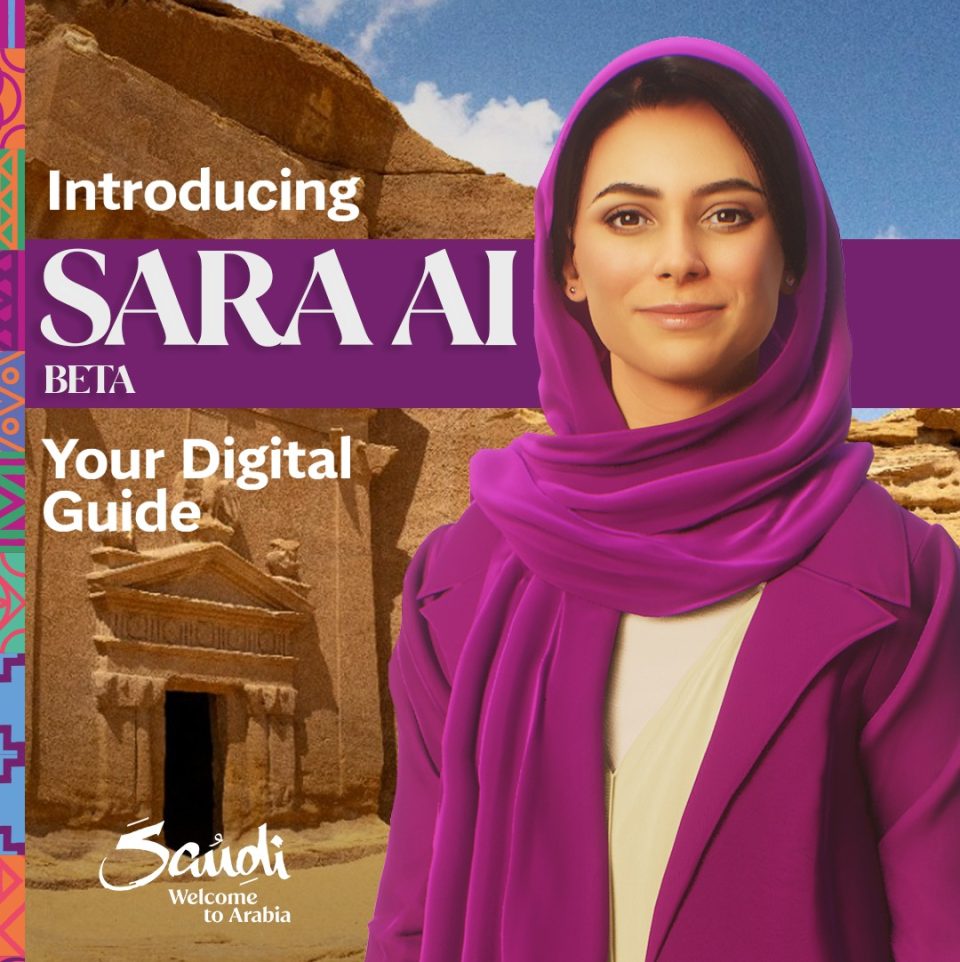
Saudi Arabia Tourism Authority has stepped into the future with the launch of ‘SARA’, a beta version of an AI-powered smart guide.
Unveiled this week at World Travel Market (WTM) 2024 in London, the tourism group gave attendees a demonstration of the AI’s extensive information bank which included destination knowledge, tourism experiences and more. ‘SARA’ even interacted with WTM attendees at the authority’s ‘Visit Saudi’ pavilion.
Designed as a young Saudi woman with a passion for travel, SARA shared insights on Saudi Arabia, its historical landscapes, cultural diversity and more.
“Visitors were able to engage with a BETA version of SARA, an AI-powered digital human that interacts with users to create personalized travel experiences,” said Saudi Arabia Tourism Authority in an online announcement.
“SARA represents Saudi Arabia’s progressive approach to smart tourism, leveraging the latest AI technologies to respond to questions, understand visitor needs, and offer personalized information and suggestions in a natural and seamless conversational style.”
The unveiling of ‘SARA’ coincided with the revelation that Visit Oman was also investigating the power of AIand its potential use as a trip planner, while Qatar Airways rolled out its own AI endeavour two years earlier, with the launch of QVerse, a virtual reality experience with the world’s first MetaHuman cabin crew.
And that’s just the beginning.
The Middle East is increasingly leaning on AI to help promote the region. The UAE is utilising AI to elevate hospitality experiences and streamlining operations, while Jordan Tourism Board was working to integrate AI in its tourism strategy this year.
Also read: Boosting hotel revenue through AI in the Middle East
Is there anything to fear?
It’s easy to fear the unknown ad let’s be honest, we don’t completely know the power of AI just yet or what it’s capable of doing. However, early implementations of AI indicate that it can complement human skills and provide support with demanding or unwanted tasks.
So far, there’s been no indication that AI will impact tourism jobs. If anything, the industry has so far used the advanced technology to promote travel, increase bookings and in turn, create more job opportunities.
But only time will tell.
Also read: Should we be threatened by the rise of AI travel agents?
Should travel agents be jumping on the AI-wagon?

Stay current or risk falling behind. That’s the lesson history will teach you.
If you remember back to the early 2000s, the travel industry, including the role of the travel agent, underwent a major makeover with the arrival of the internet. Travellers went from being entirely dependent on the knowledge and skills of the Travel Agent to becoming destination and booking experts with a simple Google search.
The industry scrambled to keep up and even some, fought the inevitable change. Eventually, the industry came around and birthed a new age Travel Agents that utilised the power of the internet to reach customers through e-newsletters and social media, assist clients at a moment’s notice through emails and even work from anywhere in the world.
So, while at first AI may seem like the big baddie trying to steal everyone’s jobs, perhaps there’s a silver lining in which travel agents can utilise the power of AI to boost their business and reduce their workload.
This could include setting up an AI chatbot on a travel agent’s website to handle frequently asked questions, working with AI to generate copy and images for marketing newsletters, or simply utilising AI video editing to create aspirational clips for social media.
Also read: How travel operators can leverage AI for customer journey excellence



